
Azithromycin versus standard care in patients with mild-to-moderate COVID-19, did not reduce the risk of hospital admission or mortality.

Azithromycin versus standard care in patients with mild-to-moderate COVID-19, did not reduce the risk of hospital admission or mortality.

A dosage of 250 mg twice daily for 10 days was confirmed for the next phase of trials after achieving initial and sustained cure in 100% of patients.

Oral ibrexafungerp could cut hospital stays for patients with invasive candidiasis infections.
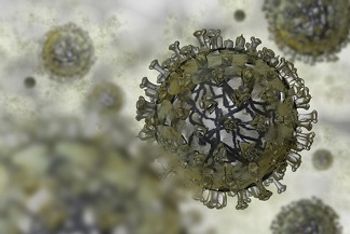
It is known that the type of respiratory specimen, sampling environmental factors, and time from symptom onset impact the sensitivity of rapid influenza diagnostic tests.

Investigators say they consider cefiderocol a candidate for therapeutic drug monitoring.

The data were released as part of the now-cancelled European Congress of Clinical Microbiology and Infectious Diseases.

Previous research has suggested an association between bacteria from the Bovis group streptococci, Clostridium septicum and colorectal cancer

Investigators have hypothesized that scarlet fever transmission is driven by pediatric cases with symptomatic disease.

A new survey found that parents in Spain were the most supportive of vaccinations when compared with their counterparts in 4 other European countries.

Whole genome sequencing revealed little overlap between MDROs found in pets and pet owners.
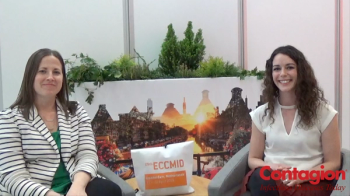
Elizabeth Hirsch, PharmD, and Elizabeth Smith, PharmD candidate, discuss fosfomycin susceptibility testing.

Minh-Hong Nguyen, MD, discusses rezafungin as a potential treatment option for intra-abdominal candidiasis.

Steven Tong, PhD, discusses the benefit of investigator-initiated studies.

László Majoros, MD, PhD, discusses how nearly all invasive fungal infections are being treated with echinocandins.

Tristan Ferry, MD, PhD, discusses bacteriophage therapy as an alternative treatment for certain patients.

Marin Kollef, MD, discusses what makes the 3-gram dose regimen of ceftolozane/tazobactam unique.

Steven Tong, PhD, discusses the next steps for research on combination therapy for MRSA bacteremia.
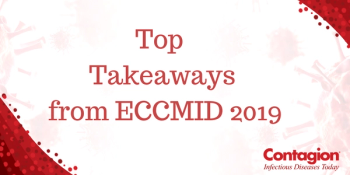
Experts from the fields of microbiology and infectious disease share their biggest takeaways and highlights from ECCMID 2019.

Nicole Cotroneo, BS, discusses her research presented at ECCMID 2019 on the activity of tebipenem against multidrug-resistant urinary tract infection-causing pathogens.

Ben Berkhout, MD, PhD, discusses his work on the development of a novel curative strategy for HIV-1 infected individuals.

Experts from the fields of microbiology and infectious disease share their biggest takeaways and highlights from ECCMID 2019.
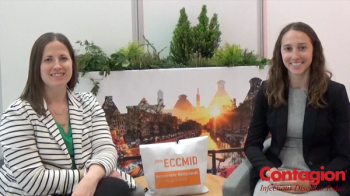
Elizabeth Hirsch, PharmD, and Mélanie Mahoney, PharmD candidate, discuss their poster on Escherichia coli ST131 in Boston vs Minneapolis at ECCMID 2019.

Marin Kollef, MD, discusses recently approved agents targeting antibiotic resistant gram-negative bacteria and what to expect in the next 5 years.

Corrine Maurice, PhD, discusses her talk at the European Congress of Clinical Microbiology and Infectious Disease (ECCMID 2019) on the interactions between host, bacteria, gut microbiota, and bacteriophages.

Ben Berkhout, PhD, discusses if CRISPR/Cas9 will be a new antiviral strategy for the eradication of HIV.
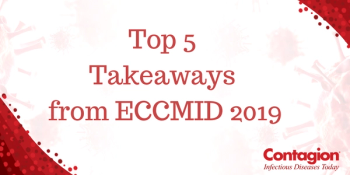
Here are the top takeaways from the European Congress of Clinical Microbiology and Infectious Disease 2019 meeting.

At ECCMID 2019, László Majoros, MD, PhD, spoke about rezafungin’s activity against common and rare Candida species in vitro.

Tristan Ferry, MD, PhD, discusses why there is a need to develop alternatives to treat chronic bone and joint infections.

Madeline King, PharmD, discusses her research presented at ECCMID 2019 on pre-operative asymptomatic bacteriuria and appropriateness of aztreonam usage.

Laura Shallcross, PhD, discusses how clinicians have “a low threshold” for initiating antibiotics in the emergency department for patients with symptoms similar to a UTI.